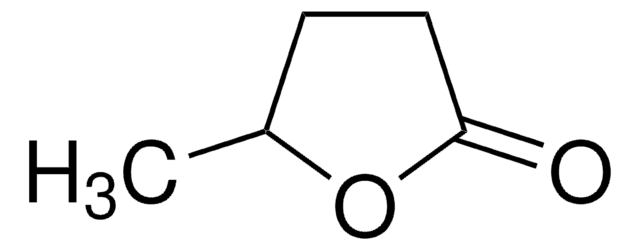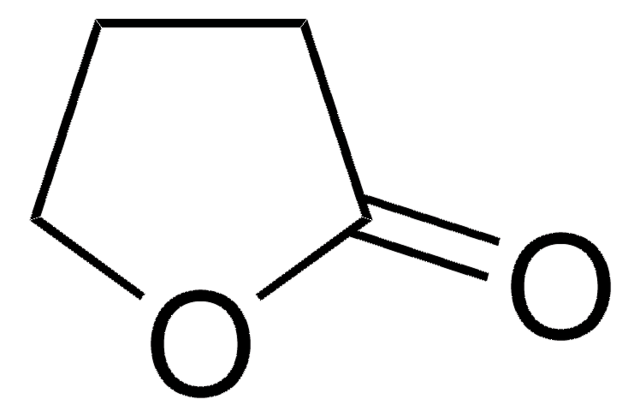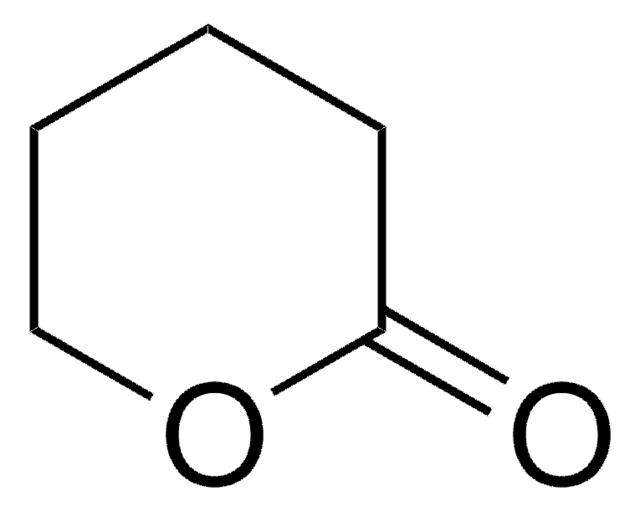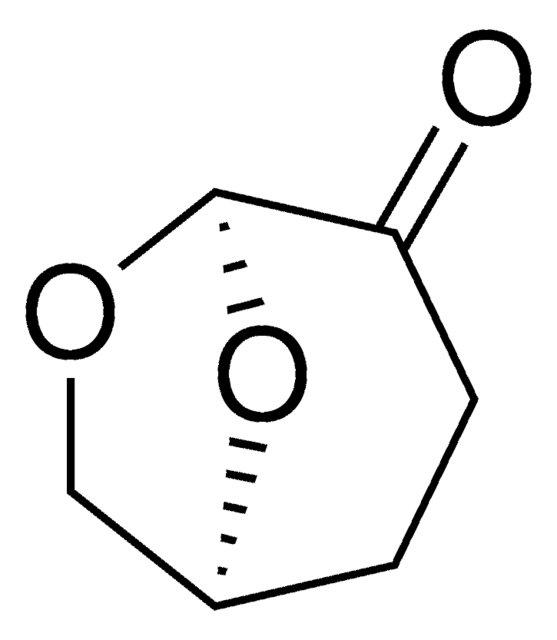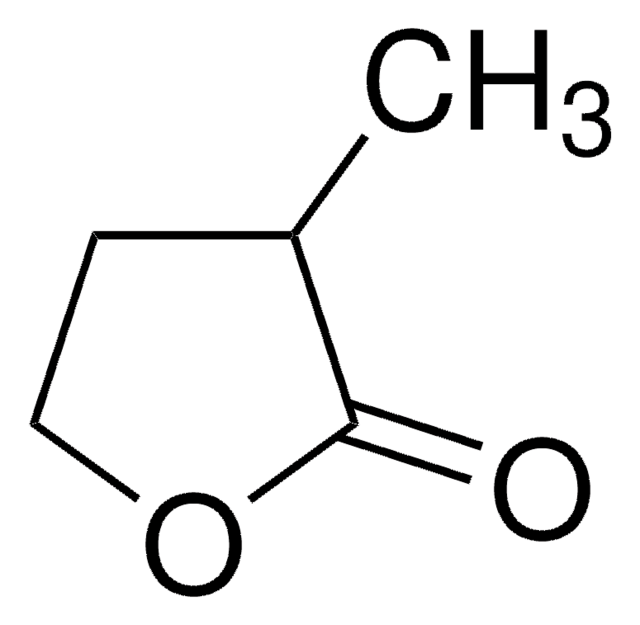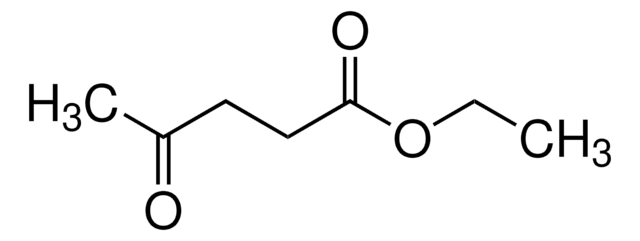W310311
γ-Valerolactone
natural, ≥95%, FG
Synonym(s):
γ-Methyl-γ-butyrolactone, 4,5-Dihydro-5-methyl-2(3H)-furanone, 4-Hydroxypentanoic acid lactone
About This Item
Kosher
natural
Recommended Products
grade
FG
Kosher
natural
reg. compliance
EU Regulation 1334/2008 & 178/2002
vapor density
3.45 (vs air)
Assay
≥95%
refractive index
n20/D 1.432 (lit.)
bp
207-208 °C (lit.)
82-85 °C/10 mmHg (lit.)
mp
−31 °C (lit.)
density
1.05 g/mL at 25 °C (lit.)
application(s)
flavors and fragrances
Documentation
see Safety & Documentation for available documents
food allergen
no known allergens
Organoleptic
cocoa; herbaceous; woody; sweet; warm
SMILES string
CC1CCC(=O)O1
InChI
1S/C5H8O2/c1-4-2-3-5(6)7-4/h4H,2-3H2,1H3
InChI key
GAEKPEKOJKCEMS-UHFFFAOYSA-N
Looking for similar products? Visit Product Comparison Guide
Related Categories
General description
Application
Biochem/physiol Actions
Signal Word
Warning
Hazard Statements
Precautionary Statements
Hazard Classifications
Eye Irrit. 2 - Skin Irrit. 2
Storage Class Code
10 - Combustible liquids
WGK
WGK 1
Flash Point(F)
204.8 °F - closed cup
Flash Point(C)
96 °C - closed cup
Choose from one of the most recent versions:
Already Own This Product?
Find documentation for the products that you have recently purchased in the Document Library.
Customers Also Viewed
Our team of scientists has experience in all areas of research including Life Science, Material Science, Chemical Synthesis, Chromatography, Analytical and many others.
Contact Technical Service